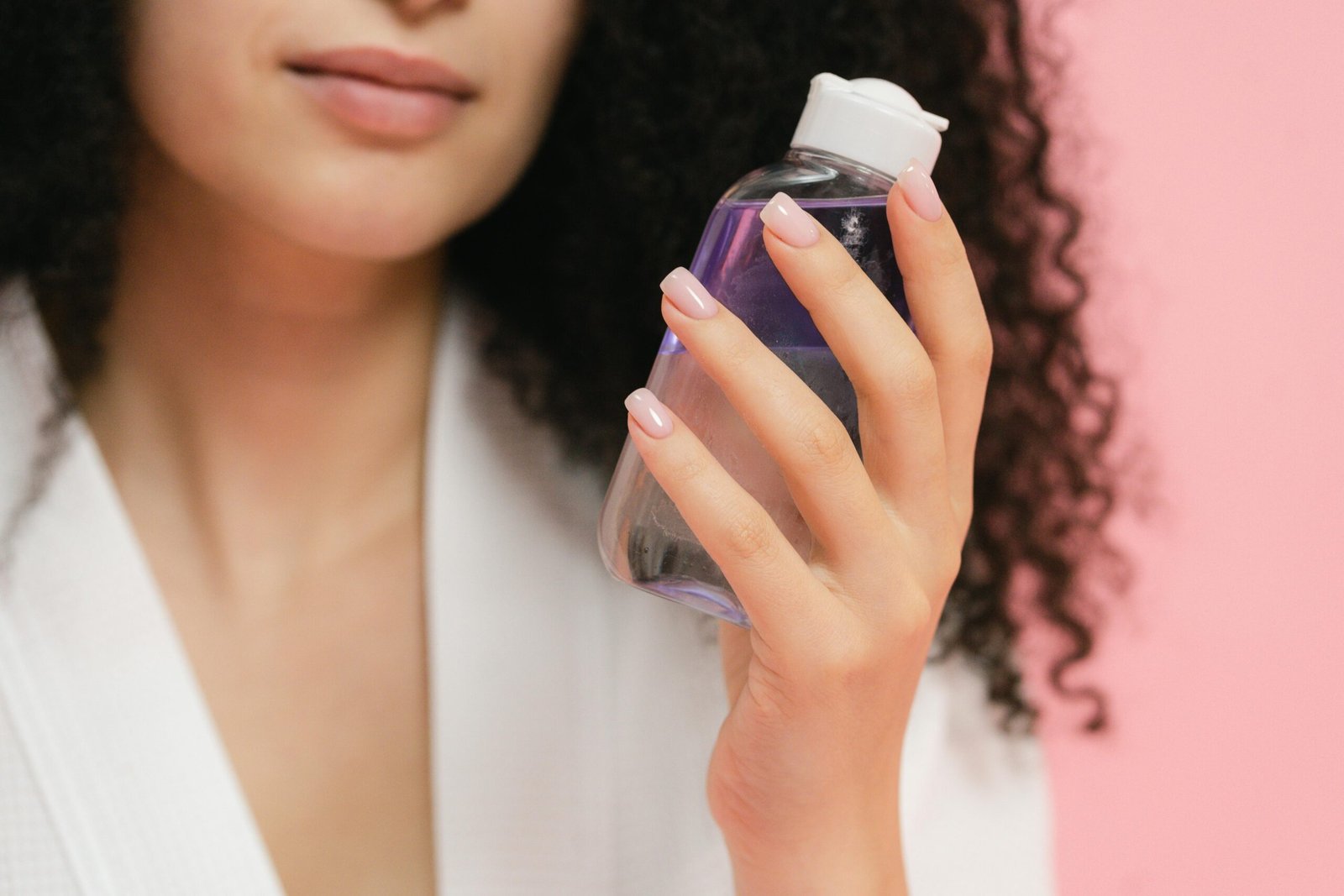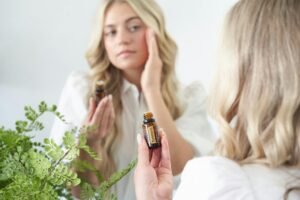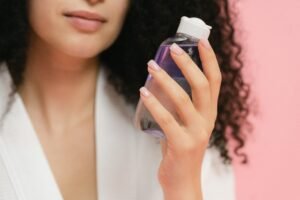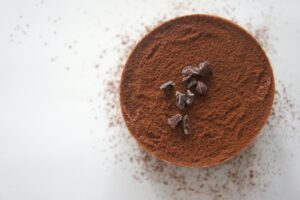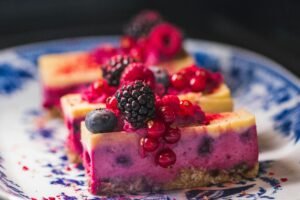Skin Moisturizers for Every Skin Type:
Maintaining healthy, hydrated skin is essential for both appearance and comfort. The right skin moisturizer can make a significant difference, whether you have oily, dry, combination, or sensitive skin. In this comprehensive guide, we will explore the best skin moisturizers for every skin type, offering detailed insights to help you choose the perfect product for your unique needs.
Understanding Your Skin Type:
Before diving into product recommendations, it is crucial to understand your skin type. Here’s a quick guide to help you identify yours:
- Oily Skin: Characterized by excess sebum production, leading to a shiny complexion and potential acne breakouts.
- Dry Skin: Often feels tight, rough, or flaky due to a lack of natural oils.
- Combination Skin: Features both oily and dry areas, typically with an oily T-zone (forehead, nose, chin) and dry cheeks.
- Sensitive Skin: Prone to irritation and redness, often reacting to specific ingredients or environmental factors.
Best Moisturizers for Oily Skin:
1. Neutrogena Hydro Boost Water Gel:
Neutrogena Hydro Boost Water Gel is a lightweight, oil-free moisturizer perfect for oily skin. Its hyaluronic acid content helps to retain moisture without clogging pores, leaving your skin feeling refreshed and hydrated.
- Key Ingredients: Hyaluronic Acid, Glycerin
- Benefits: Lightweight, non-greasy, long-lasting hydration
- Usage: Apply twice daily, morning and night
2. La Roche-Posay Effaclar Mat:
This mattifying moisturizer is specifically designed for oily and acne-prone skin. La Roche-Posay Effaclar Mat works to reduce shine and minimize pores, providing a matte finish throughout the day.
- Key Ingredients: Sebulyse Technology, Perlite
- Benefits: Oil-control, pore minimization, matte finish
- Usage: Apply once daily, preferably in the morning
Best Moisturizers for Dry Skin:
1. CeraVe Moisturizing Cream:
CeraVe Moisturizing Cream is a highly recommended product for dry skin. Its ceramide-rich formula restores the skin’s natural barrier, providing long-lasting hydration and relief from dryness.
- Key Ingredients: Ceramides, Hyaluronic Acid, MVE Technology
- Benefits: Intense hydration, restores skin barrier, fragrance-free
- Usage: Apply generously as needed, especially after bathing
2. Eucerin Advanced Repair Cream:
Eucerin Advanced Repair Cream offers a potent combination of urea and ceramides to deliver deep hydration and repair very dry skin. It helps to reduce roughness and improve overall skin texture.
- Key Ingredients: Urea, Ceramides, Natural Moisturizing Factors (NMF)
- Benefits: Deep hydration, improves skin texture, fragrance-free
- Usage: Apply twice daily or as needed
Best Moisturizers for Combination Skin:
1. Clinique Dramatically Different Moisturizing Gel:
Clinique Dramatically Different Moisturizing Gel is an excellent choice for combination skin. Its oil-free formula hydrates dry areas while controlling shine in oily zones, ensuring balanced skin.
- Key Ingredients: Sunflower Seed Cake, Barley Extract, Cucumber Fruit Extract
- Benefits: Balances skin, oil-free, lightweight
- Usage: Apply twice daily, morning and night
2. Kiehl’s Ultra Facial Cream:
Kiehl’s Ultra Facial Cream is a versatile moisturizer that works well for combination skin. Its lightweight yet rich formula provides 24-hour hydration without feeling greasy.
- Key Ingredients: Squalane, Glacial Glycoprotein
- Benefits: Long-lasting hydration, non-greasy, lightweight
- Usage: Apply as needed, particularly in dry areas
Best Moisturizers for Sensitive Skin:
1. Aveeno Ultra-Calming Daily Moisturizer SPF 30:
Aveeno Ultra-Calming Daily Moisturizer is designed to soothe and protect sensitive skin. Its gentle formula, enriched with feverfew extract, helps to calm irritated skin while providing sun protection.
- Key Ingredients: Feverfew Extract, SPF 30
- Benefits: Soothes irritation, reduces redness, sun protection
- Usage: Apply daily in the morning
2. Vanicream Moisturizing Cream:
Vanicream Moisturizing Cream is free of common irritants, making it ideal for sensitive skin. It provides rich hydration without causing irritation or clogged pores.
- Key Ingredients: Glycerin, Petrolatum, Sorbitol
- Benefits: Gentle, non-irritating, rich hydration
- Usage: Apply as needed, especially after cleansing
Tips for Choosing the Right Moisturizer:
Selecting the right moisturizer can be challenging, but these tips can help simplify the process:
- Identify Your Skin Type: Understanding whether you have oily, dry, combination, or sensitive skin is crucial for choosing the appropriate product.
- Read Ingredients: Look for key ingredients that benefit your skin type. For instance, hyaluronic acid is great for hydration, while ceramides help repair the skin barrier.
- Avoid Irritants: Especially if you have sensitive skin, avoid products with fragrances, alcohol, and harsh chemicals.
- Consider Seasonal Changes: Your skin’s needs may vary with the seasons. You might need a richer moisturizer in the winter and a lighter one in the summer.
- Patch Test: Before applying a new moisturizer to your face, do a patch test on a small area of your skin to check for any adverse reactions.
Common Ingredients in Skin Moisturizers and Their Benefits:
Understanding the common ingredients found in skin moisturizers can help you make an informed choice. Here are some key components and their benefits:
Hyaluronic Acid:
Hyaluronic acid is a powerful humectant that can hold up to 1000 times its weight in water. It helps to deeply hydrate the skin, making it plump and smooth. This ingredient is suitable for all skin types, especially dry and aging skin.
Ceramides:
Ceramides are lipids that are naturally found in the skin’s barrier. They play a crucial role in maintaining skin hydration and protecting against environmental aggressors. Moisturizers containing ceramides are ideal for dry and sensitive skin.
Glycerin:
Glycerin is another excellent humectant that attracts water to the skin. It helps to keep the skin hydrated and soft. Glycerin is a common ingredient in many moisturizers due to its effectiveness and compatibility with all skin types.
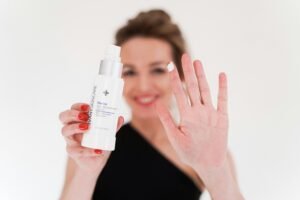
Niacinamide:
Niacinamide, or vitamin B3, offers multiple benefits, including improving skin elasticity, enhancing barrier function, evening out skin tone, and diminishing dullness. It is particularly beneficial for sensitive and acne-prone skin.
Squalane:
Squalane is a natural emollient that mimics the skin’s natural oils. It provides intense hydration without clogging pores, making it perfect for all skin types, especially those with dry or combination skin.
Peptides:
Peptides are short chains of amino acids that help to build proteins in the skin, such as collagen and elastin. They can help to reduce the appearance of fine lines and wrinkles, making them a great addition to anti-aging moisturizers.
How to Apply Moisturizer Effectively:
Applying your moisturizer correctly can enhance its effectiveness. Here are some tips to maximize the benefits:
- Cleanse First: Always start with clean skin to remove dirt, oil, and makeup.
- Tone Your Skin: Using a toner can help to balance your skin’s pH and prepare it for better absorption of the moisturizer.
- Apply to Damp Skin: Applying moisturizer to slightly damp skin can help to lock in moisture more effectively.
- Use the Right Amount: A pea-sized amount is usually sufficient for your face. Avoid using too much product to prevent clogged pores and excessive shine.
- Massage Gently: Gently massage the moisturizer into your skin using upward, circular motions to stimulate circulation and ensure even distribution.
- Don’t Forget Your Neck: Extend your moisturizing routine to your neck and décolletage to keep these areas hydrated and youthful-looking.
Additional Tips for Maintaining Healthy Skin:
In addition to using the right moisturizer, adopting a holistic approach to skincare can further enhance your skin’s health and appearance. Here are some additional tips:
Stay Hydrated:
Drinking plenty of water is essential for maintaining hydrated skin. Aim to drink at least eight glasses of water a day to help flush out toxins and keep your skin looking fresh and plump.
Eat a Balanced Diet:
A diet rich in fruits, vegetables, lean proteins, and healthy fats can provide the necessary nutrients for healthy skin. Foods high in antioxidants, such as berries, nuts, and leafy greens, can help protect your skin from damage.
Get Enough Sleep:
Quality sleep is crucial for skin repair and regeneration. Aim for 7-9 hours of sleep per night to help your skin recover from daily stress and maintain a healthy glow.
Protect Your Skin from the Sun:
Daily sun protection is vital to prevent premature aging and skin cancer. Use a broad-spectrum sunscreen with at least SPF 30, and reapply every two hours when exposed to the sun.
Exercise Regularly:
Regular exercise boosts circulation, which helps to nourish skin cells and keep them healthy. It also promotes the production of natural oils, contributing to a glowing complexion.
Avoid Smoking and Excessive Alcohol Consumption:
Smoking and excessive alcohol consumption can dehydrate the skin and accelerate the aging process. Avoiding these habits can help to maintain your skin’s health and youthfulness.
Manage Stress:
Chronic stress can negatively impact your skin, leading to breakouts and other skin issues. Practice stress management techniques such as meditation, yoga, or deep breathing exercises to keep your stress levels in check.

Conclusion:
Selecting the best skin moisturizer for your skin type is a key step in maintaining healthy, hydrated, and radiant skin. By understanding your skin type, choosing products with beneficial ingredients, and following proper application techniques, you can achieve and maintain a beautiful complexion. Incorporating a holistic approach to skincare that includes a healthy lifestyle, sun protection, and stress management will further enhance your skin’s overall health and appearance.
